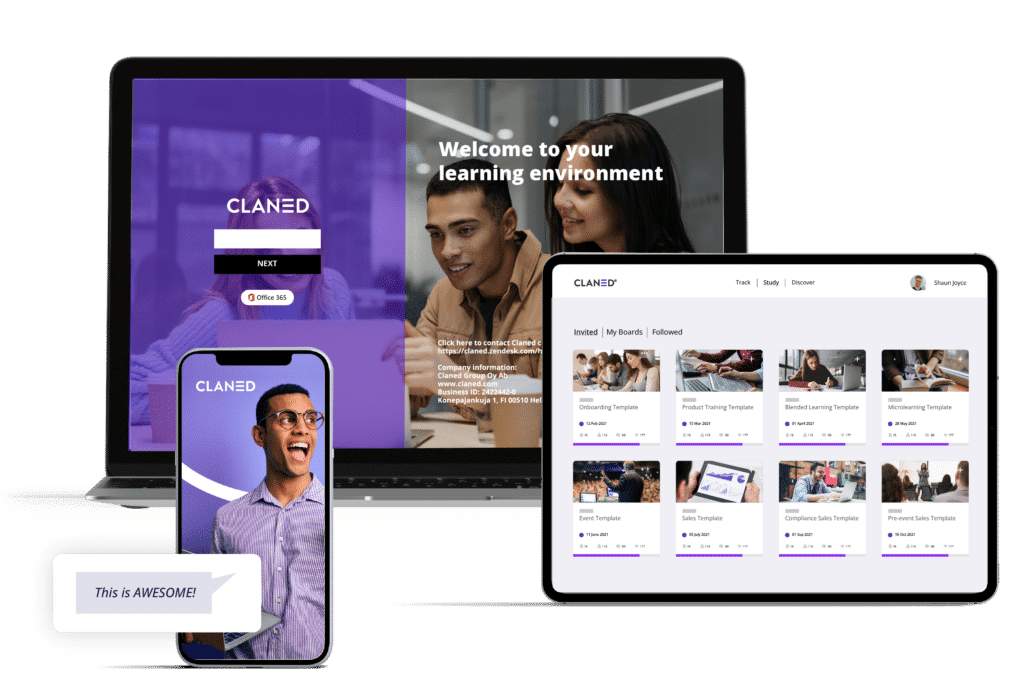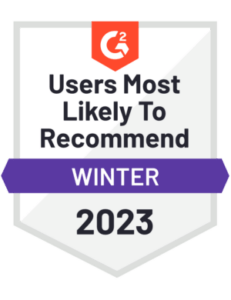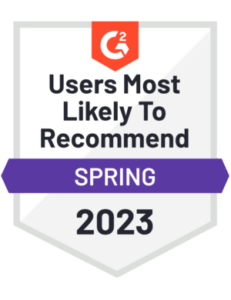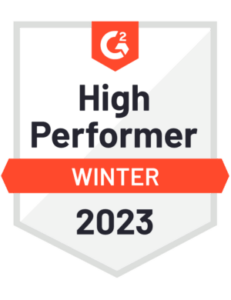In today’s rapidly evolving digital landscape, organizations are continually seeking innovative ways to enhance employee learning and development. One such solution that has gained significant traction is the Learning Experience Platform (LXP).
With its unique approach to learning, an LXP provides a comprehensive and personalized learning experience for individuals within an organization.
This definitive guide aims to shed light on what exactly a Learning Experience Platform is, explore its benefits, delve into its key features, differentiate it from traditional Learning Management Systems (LMS), and coupled with some current/future trends.
What is a Learning Experience Platform?
A Learning Experience Platform (LXP) is a digital learning solution that facilitates personalized and learner-centric training experiences.
Unlike traditional Learning Management Systems, which primarily focus on content delivery and management, an LXP takes a holistic approach by curating, organizing, and presenting content in a way that is intuitive, engaging, and tailored to individual learners’ needs, and often include interactive, social and collaborative elements and functions.
In addition to acting as a central hub for learning and learning related activities, it also takes on aspects of a social network, where learners (and teachers/instructors) are free to engage, contribute and learn from and with each other.
What are The Benefits of Learning Experience Platforms?
Personalized Learning:
One of the primary benefits of an LXP is its ability to deliver personalized learning experiences. By leveraging artificial intelligence and machine learning algorithms, an LXP analyzes learners’ preferences, behaviors, and skill gaps to recommend relevant and targeted content.
This personalized approach not only enhances learner engagement but also accelerates the learning process, as individuals can focus on acquiring the specific knowledge and skills they need to excel in their roles.
Learner-Centric Learning:
LXP’s place learners, their needs and experience at the centre of all activities. This means encouraging autonomy, and shifting from a tightly controlled “top-down” approach to a more inclusive and horzionatl approach.
This encourages learners to explore their interests, make meaningful contributions during a course of study and develop their own expertise – with the guidance and support of resources, instructors and mentors. In some cases this might mean flexible corriculums, optional contents, and individual paths through a course of study.
This self-directed and inclusive approach fosters a sense of autonomy and ownership, making the learning experience more enjoyable and empowering for learners.
Social Learning and Collaboration:
Another significant feature of LXPs is their emphasis on social learning and collaborative learning. LXP’s often incorporate social features such as discussion forums, chats, peer-to-peer learning communities, learner workspaces, and virtual classrooms, enabling learners to connect, share knowledge, and collaborate with their peers and instructors.
By fostering a sense of community and encouraging interaction, LXPs create an immersive and supportive learning environment that are shown to enhance knowledge retention and facilitate the exchange of ideas.
This is sometimes referes to as a “community of practice” within learning sciences and these communities are shown to play a significant role in individuals knowledge and development within a subject area.
Data-Driven Insights:
Learning Experience Platforms provide organizations with valuable data and insights into learners’ progress, engagement levels, and skill development.
Through comprehensive analytics and reporting features, LXPs enable administrators and instructors to identify trends, measure the effectiveness of learning initiatives, and make data-driven decisions to optimize training programs.
These insights help organizations enhance learning outcomes, identify skill gaps, and align learning initiatives with both employee needs, and business objectives.
Read: Learning Analytics: How Can You Use it To Improve Performance?
Key Features of Learning Experience Platforms
Content Curation and Aggregation:
LXPs excel at curating and aggregating learning content from various sources, including internal training materials, external courses, articles, and multimedia resources.
Some platforms use intelligent algorithms to organize and present content in a user-friendly manner, ensuring that learners can easily discover and access the resources most relevant to their learning goals.
Personalization and Recommendations:
The ability to provide personalized learning experiences is a core feature of LXPs. These platforms leverage data analytics and machine learning algorithms to understand learners’ actions and behaviour when learning.
Based on this, informed decisions can be made about how to update, or elaborate on various topics or content, and how to best support learners to succeed.
Social and Collaborative Learning Tools:
Learning Experience Platforms incorporate social learning tools to foster collaboration and knowledge exchange. These tools can include discussion boards, chat functionality, virtual classrooms, and collaborative projects, which facilitate peer-to-peer interaction, knowledge sharing, and group learning activities.
By creating a sense of community and enabling learners to connect with their peers and instructors, LXPs promote active engagement and collaborative learning experiences.
Microlearning:
LXPs often feature microlearning modules, which deliver bite-sized and focused content that is easily digestible and can be accessed on-demand. T
his approach allows learners to acquire knowledge in short bursts – which is often better suited to working-life situations and has been shown to increase information retention and enables them to apply new knowledge immediately.
Mobile Learning:
Recognizing the importance of flexibility and accessibility, LXPs are designed to be mobile-friendly, enabling learners to access training materials and resources from their smartphones or tablets. Mobile learning allows individuals to engage in learning activities anytime, anywhere, making it ideal for remote workers or those on the go.
Learning Experience Platforms vs Learning Management Systems
While Learning Experience Platforms and Learning Management Systems share some similarities, there are key differences that set them apart:
User Experience:
LXPs prioritize the learner experience, providing a user-centric and intuitive interface that promotes engagement and personalization. On the other hand, Learning Management Systems tend to be more administrative-focused, emphasizing course management, compliance tracking, and reporting functionalities.
Content Delivery:
LXPs excel in content curation and aggregation, offering a wide variety of learning resources from multiple sources. They use sophisticated algorithms to recommend personalized content based on learners’ preferences and needs.
But, Learning Management Systems primarily focus on delivering and tracking pre-defined courses and materials.
Self-Directed Learning:
Learning Experience Platforms emphasize self-directed learning, enabling learners to explore and choose their own learning paths. They provide learners with the freedom to access a vast library of resources and encourage them to take control of their learning journey, activly question, explain and contribut to the dialogue surrounding a topic of study.
In contrast, Learning Management Systems often follow a structured curriculum, where learners progress through pre-determined courses.
Social and Collaborative Learning:
LXPs prioritize social and collaborative learning, facilitating interactions, discussions, and knowledge sharing among learners. They incorporate features such as forums, chat, and virtual classrooms to create a sense of community. Learning Management Systems, while offering some collaboration features, typically have a more limited focus on social learning.
Read. LMS vs LXP: Which One’s Right for You?
The Current, Future Trends and Innovations of LXPs
As technology advances and learning evolves, the future of LXPs holds exciting possibilities. Here are some emerging trends and innovations:
Artificial Intelligence, particularly LLM’s (large language models) and Machine Learning Applications: AI and machine learning algorithms will play an increasingly significant role in LXPs.
These technologies will enable even more personalized learning experiences, adaptive content delivery, intelligent feedback, and predictive analytics to enhance learner outcomes and provide personalized recommendations based on individual learning styles and preferences and act as a “study-buddy” to help focus attention and motivate learners.
They will benefit the course creators and trainers too in the form of co-pilot programs helping them to create better content and structures to their courses more quickly, grade written responses to test and quiz questions, and create dynamic testing formats that focus more individually on each learners needs, strengths, weaknesses, and current understandings.
Virtual and Augmented Reality Integration:
Virtual and augmented reality technologies have the potential to revolutionize the learning experience. By integrating VR and AR capabilities into LXPs, learners can engage in immersive simulations, virtual labs, and interactive scenarios that enhance practical skills development and experiential learning.
Microlearning and Bite-Sized Content:
Microlearning, which delivers learning content in short, bite-sized modules, is gaining popularity. LXPs will continue to embrace microlearning as an effective way to deliver targeted and easily digestible information. This approach accommodates learners’ busy schedules and enables just-in-time learning, leading to better knowledge retention and application.
Social and Collaborative Learning Evolution:
The social and collaborative learning features of LXPs will continue to evolve, fostering stronger learner communities. LXPs may integrate advanced communication tools, such as real-time video conferencing and collaborative virtual environments, to facilitate seamless collaboration and knowledge exchange among learners and instructors.
Continuous Learning and Lifelong Learning Initiatives:
The future of LXPs will embrace the concept of continuous learning and lifelong learning. LXPs will provide opportunities for learners to access learning resources beyond their immediate needs, supporting their ongoing professional development and career advancement. This approach will empower individuals to take ownership of their learning and stay adaptable in a rapidly evolving world.
Conclusion
Learning Experience Platforms have emerged as a powerful tool in the realm of employee training and development. By offering personalized, engaging, and social learning experiences, LXPs empower individuals to take ownership of their learning journeys and acquire the skills they need to thrive in their roles.
With their focus on content curation, personalization, and collaboration, LXPs complement and enhance traditional Learning Management Systems, providing organizations with a comprehensive solution to meet the diverse learning needs of their workforce in the digital age.







